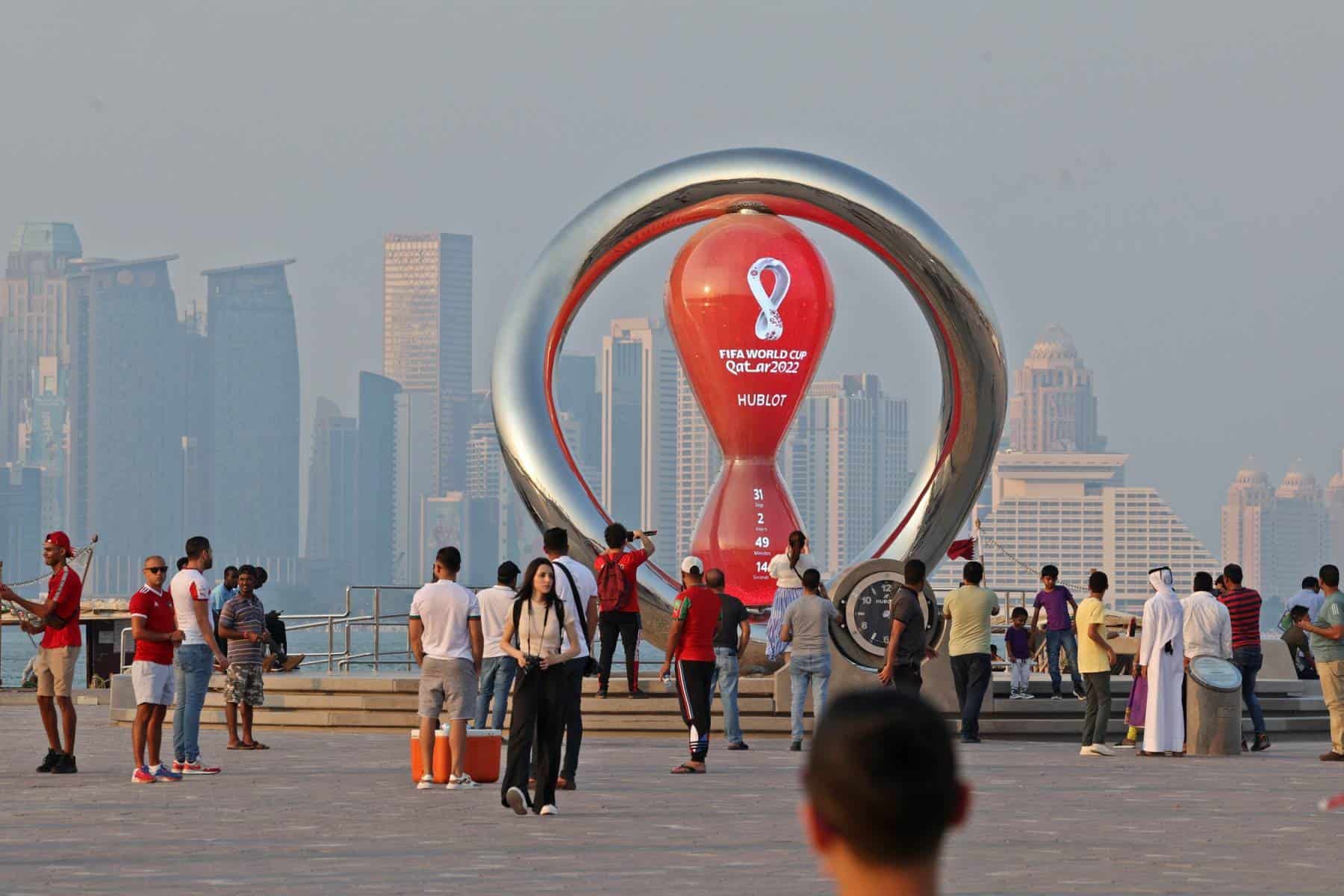Riyadh, Saudi Arabia—Saudi Arabia is putting on 240 flights a week and easing overland travel to attract tens of thousands of football fans attending the World Cup in neighbouring Qatar, the kingdom’s tourism minister told AFP on Wednesday.
The efforts are intended to jumpstart the nascent tourism sector in the once closed-off kingdom, which only began issuing tourist visas in September 2019 — just months before the coronavirus pandemic decimated the industry globally.
With prices high and accommodation options limited in Doha, Qatar’s Gulf neighbours are expected to soak up an overflow of fans, organizing more than 160 daily shuttle flights between them and relaxing visa requirements.
Saudi Arabia has offered multi-entry 60-day visas to holders of the World Cup’s Hayya pass, the compulsory permit available to ticket-holders.
Weekly flights from Saudi to Qatar will soar to 240 during the month-long tournament, up from six normally, tourism minister Ahmed Al Khateeb said on the sidelines of an investor forum in Riyadh.
For overland travellers, officials have upgraded roads from Riyadh and cities in eastern Saudi Arabia — which are closer to Qatar — to the border, Khateeb said.
They have also expanded petrol stations, internet connectivity and access to first aid and other medical services along the route, he said.
A newly launched 10-lane border crossing “doesn’t take you more than 10 minutes” to pass through, he added.
Facilitating cross-border travel could give ticket-holders a Saudi alternative to lodging in Doha, where more than one million fans are expected.
“I think we are ready when it comes to transportation, mobility, airlines, airports, borders, healthcare, telecommunications. We’re ready and excited,” Khateeb said.
“We can’t wait for the World Cup to start and we can’t wait to welcome our guests from all over the world.”
He added: “We are working with the (destination management companies) and the tour companies in Europe and Latin America and Asia, and we are expecting tens of thousands of packages to be sold.”
Saudi Arabia has raised eyebrows with its goal of attracting 30 million foreign tourists annually by 2030, an element of Crown Prince Mohammed bin Salman’s Vision 2030 reform agenda intended to diversify the oil-dependent economy and open up to the world.
While the kingdom has in recent years relaxed rules barring cinemas, gender-mixed concerts and sporting extravaganzas, other regulations including the alcohol ban and laws against homosexuality remain in place, potentially denting its appeal.
One high-profile feature of the tourism push is so-called giga-projects spearheaded by Prince Mohammed, including the $500 billion futuristic megacity known as NEOM, a budding arts hub amongst ancient Nabatean tombs in Al-Ula, and the Red Sea Project, a Maldives-style resort destination.







